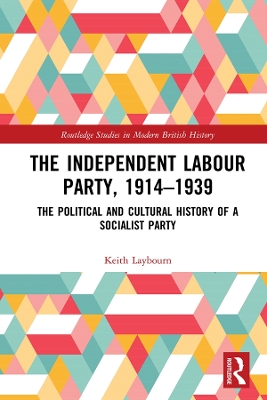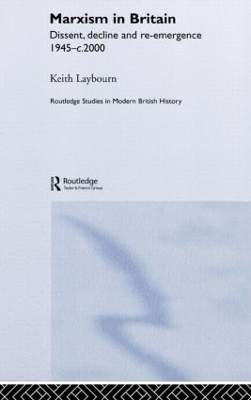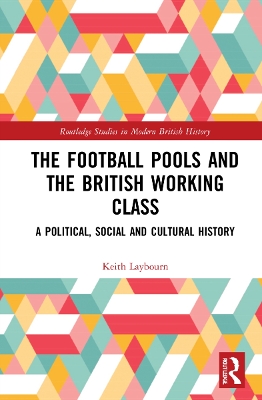Routledge Studies in Modern British History
3 total works
Historians of political history are fascinated by the rise and fall of political parties and, for twentieth-century Britain, most obviously the rise of the Labour Party and the decline of the Liberal Party. What is often overlooked in this political development is the work of the Independent Labour Party (ILP), which was a formative influence in the growth of the political Labour movement and its leaders in the late nineteenth century and the early to mid-twentieth century. The ILP supplied the Labour Party with some of its leading political figures, such as Ramsay MacDonald, and moved the Labour Party along the road of parliamentary socialism. However, divided over the First World War and challenged by the Labour Party becoming socialist in 1918, it had to face the fact that it was no longer the major parliamentary socialist party in Britain.
Although it recovered after the First World War, rising to between 37,000 and 55,000 members, it came into conflict with the Labour Party and two Labour governments over their gradualist approach to socialism. This eventually led to its disaffiliation from the Labour Party in 1932 and its subsequent fragmentation into pro-Labour, pro-communist and independent groups. Its new revolutionary policy divided its members, as did the Abyssinian crisis, the Spanish Civil War and the Moscow Show Trials. By the end of the 1930s, seeking to re-affiliate to the Labour Party, it had been reduced to 2,000 to 3,000 members, was a sect rather than a party and had earned Hugh Dalton’s description that it was the ‘ILP flea’.
In the following monograph, Keith Laybourn analyses the dynamic shifts in this history across 25 years. This scholarship will prove foundational for scholars and researchers of modern British history and socialist thought in the twentieth century.
Since the Second World War, Marxism in Britain has declined almost to the point of oblivion. The Communist Party of Great Britain had more than 50,000 members in the early 1940s, but less than 5,000 when it disbanded in 1991. Dissenting and Trotskyist organisations experienced a very similar decline, although there has been a late flowering of Marxism in Scotland.
Based on the Communist Party archives at Manchester, this text examines the decline over the last sixty years. Dealing with the impact of the Cold War upon British Marxism, the book looks at how international events such as the Soviet invasions of Hungary and Czechslovakia affected the Communist Party of Great Britain. The issues of Marxism and Britain’s withdrawal from the Empire are also addressed, as are the Marxist influence upon British industrial relations and its involvement in the feminist movement.
Focusing on the current debate in British Marxist history over the influence of Moscow and Stalinism on the Communist Party, Keith Laybourn explores the ways in which this issue, which divides historians, undermined Marxism in Britain.
This book is the first national study of the football pools in Britain which examines the politics and culture of the gambling on the football pools. It charts the rise of the football pools, focusing upon its rapid growth from the 1920s and its prolonged decline in British culture from the 1990s, partly as a result of the National Lottery. The book explores how this new gambling activity became a significant leisure opportunity for the working class - a way to feel that the individual skill of the punter could lead to the winning of some life-changing jackpot cheque being presented by a sporting personality of celebrity. Dominated by Littlewoods, and other large commercial companies, the weekly filling-in of the coupons was considered to be a safe form of investment, guaranteed by the integrity of the pool companies, rather than some seedy gambling operation.
The Football Pools and the British Working Class looks at different elements of the football pools from what attracted people to this form of gambling to how the industry developed and adjusted to the suspension of the football fixtures in 1936, and the bad winter of 1962-3. Above all, it examines the deep hostility that surrounded the filling in of the football pools arising from the National Anti-Gambling League, religious groups, the football authorities and MPs.
This book will appeal to all those interested in the history of British football and 20th century British working class culture.


